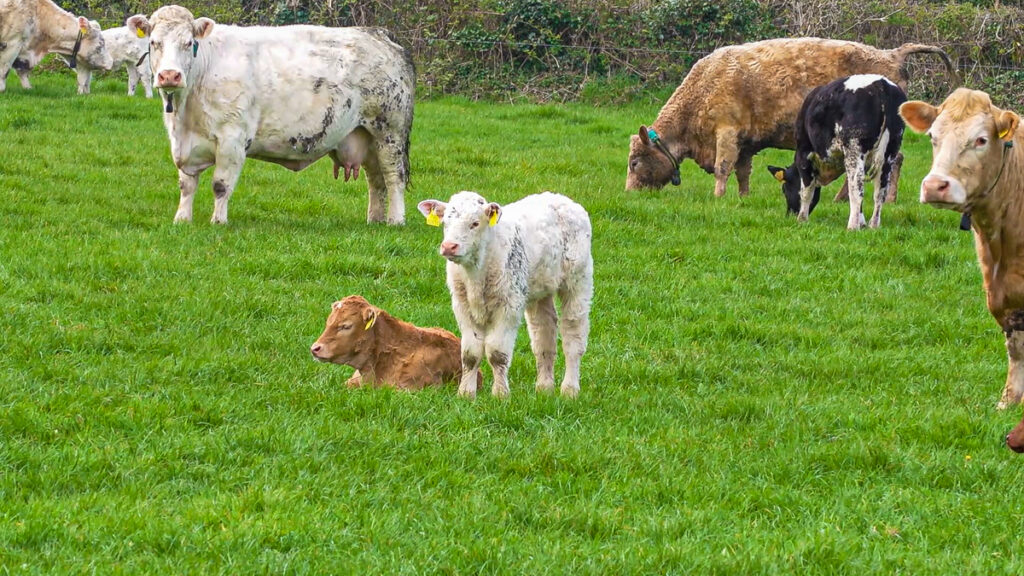Rural crime increased by 22.1% in 2022 to £49.5 million, according to an NFU Mutual report published today (Tuesday, August 1).
Quad and ATV theft (+34%), agricultural vehicle theft (+29%) and livestock theft (+8.7%) all saw rises in 2022 compared to the year before, the rural insurance branch of the National Farmers’ Union (NFU) said in its annual report for last year.
NFU Mutual received quad and ATV theft reports worth £3 million last year. The cost of agricultural vehicle theft rose to £11.7 million and the cost of livestock theft now stands at £2.7 million.
Wales saw the biggest increase in the cost of rural theft, rising to £2.3 million in 2022, up from £1.3 million in 2021, a rise of 72.8%.
Meanwhile, Scotland saw the biggest decrease in the cost of rural crime. The cost of crime fell by 48.3%, coming down to £1.4 million in 2022 from £2.6 million in 2021.

The rural crime report also included the top 10 worst-affected counties by cost of rural crime in 2022.
Lincolnshire is in first place with the highest cost of rural crime in the UK in 2022 – standing at £2,538,444. This figure is up 5.5% on the year before.

Cambridgeshire is in second place, but experienced the biggest increase in rural crime cost overall. The cost of rural crime in the county went up by 123.7% from 2021.
The cost of rural crime in Cambridgeshire now stands at £2,094,622, compared to its previous figure of £936,420 in 2021.
Livestock theft
Issues relating to livestock theft and livestock worrying also feature in this year’s report, with NFU Mutual describing livestock theft as remaining “one of the costliest crimes to farming”.
The rural insurer said claims regularly involve over 50 sheep taken in a single raid, and that this can have a “devastating impact on breeding lines” as well as being a huge worry for farmers about the welfare of the stolen stock.

According to NFU Mutual, UK farm animals worth an estimated £1.8 million were killed or injured by dogs in 2022.
Rural business policy advisor at NFU Scotland, Rhianna Montgomery, said spring of this year saw a “constant stream of reports of cattle and sheep being attacked by dogs”.
“Alongside livestock attacks by dogs, any incidents of rustling will inflict significant suffering on farmers and crofters who have lost stock,” she said.
“Vigilance is key. In any case of rustling, trailers and lorries will be involved and we continue to encourage anyone who notices a strange vehicle in an unusual place to report the registration number and any details to 101 and allow Police Scotland to take the matter further.”
NFU Mutual said the cost of dog attacks on livestock increased by more than 50% between 2019 and 2022 as “puppies over the pandemic came of age”.
“As well as receiving reports of out-of-control dogs attacking farm animals and leaving them to suffer and die from unbearable injuries, NFU Mutual has heard from farmers whose livestock have drowned, suffocated, fallen off cliffs or miscarried as a result of being chased by dogs,” NFU Mutual said.
“Despite these reports, NFU Mutual’s latest survey of over 1,100 dog owners found almost half (46%) believed their dog was not capable of injuring or killing livestock and 39% admitted their pets do not always come back when called.”
Rural community and mental health
NFU Mutual chair, Jim McLaren, said the figures featured in this year’s rural crime report show that theft “continues to blight” the UK’s agricultural industry, and many farmers have experienced the loss of farm machinery, vehicles, fuel or GPS units.
“This year’s rural crime figures make depressing reading but sadly will not come as a surprise to most farmers,” he said.
“The costly issue of rural crime impacts lives and livelihoods as it puts additional pressure on farming families who may feel vulnerable knowing that homes and workplaces are being watched.”
Incidences of rural crime impact the individual farmer and farming enterprise, but also effect the wider rural community.
This is according to NFU Mutual rural affairs specialist, Hannah Binns, who referred to a survey of NFU Mutual agents that found that 70% knew farmers who had been repeat victims of rural crime.
“These thefts are hitting the rural community harder as it continues to battle with the cost-of-living crisis,” she said.
“After two years of NFU Mutual seeing a fall, it is concerning to now see rural crime reach pre-pandemic levels despite farmers’ best efforts to protect themselves.”
The survey of NFU Mutual agents also showed that 86% think thieves are cashing in on the limited supply of vehicles and rising prices.
“World events have triggered new illicit markets, creating more demand for stolen machinery,” Binns said.
As a result, Binns said, many farmers and farming families feel targeted and vulnerable in “what is not just their workplace, but also their family home”.

Farm safety manager, Stephanie Berkeley, believes that the impact of rural crime on the physical and mental wellbeing of the farmer and his family can be “too often” overlooked.
“The UK’s farming industry is struggling with spiralling costs and levels of mental well-being in farming have been deteriorating over the past few years,” she said.
“This can have a direct impact on safety behaviours in an industry that already has the poorest safety record in the UK.
“Victimisation, being repeatedly targeted by criminals, a reluctance to report the crime and the costs borne by farmers already under pressure from the aftermath of Brexit, a global pandemic, supply chain shortages and spiralling costs mean that rural crime often cuts deeper than financial loss.”
Berkeley reiterated Binns’ point that it is not just the farmer’s workplace being targeted and impacted by thieves and rural crime, but their home too.
“High levels of anxiety and disruption can have a significant impact on psychological well-being and make victims feel vulnerable and alone,” she said.

